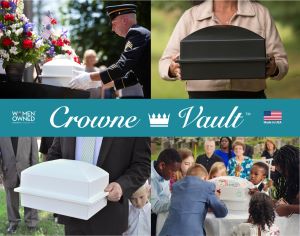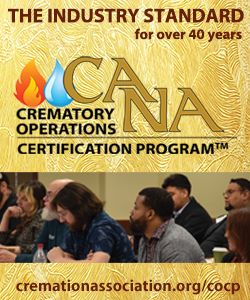Black funeral homes and the Civil Rights movement

About the time that I had completed two-thirds of my term as a member of the University of Minnesota’s Board of Regents the University hired a new President. Her name was Joan Gabel and she became the first female President of the University of Minnesota, coming to the U of M after serving as Provost of the University of South Carolina. She also had worked in Georgia and Florida for a period of time.
After we got to know each other a little and she realized that I was a funeral director and funeral home owner we had some discussions about some of her friends from the South who happened to be Black funeral home owners. It was from President Gabel, and her knowledge from living in the South, that I first learned about Black funeral homes and their role in the civil rights movement of the 1950’s and 1960’s.
Quite frankly, as a rural northern person, even though I was a funeral home owner, I had never thought of the influence that Black funeral home owners, especially in the South, had on their local community and their influence in getting things done. And, helping move the Civil Rights movement along was one of those things that many Black funeral home owners can take some credit for.
According to this article from Virginia Tech University with research sometime after the Civil War on “. . . the work of Booker T. Washington, who believed that with the exception of caterer, there was no other business (funeral homes) in which African-Americans “seem to be more numerously engaged or one in which they have been more uniformly successful.””
Not long after that around the year 1900 this research article from Washington University made this observation, “During this era, the role of the African-American undertaker/funeral director evolved into a pillar of the African-American community.”
So, the Black funeral home owner was one of the most successful business people in the Black community and also was looked on as pillar of the community. It was those two attributes that made the Black funeral home in many communities a logical place to hold community meetings leading into the Civil Rights movement.
That same article from Washington University made this comment about Black funeral homes and the Civil Rights movement, “In addition to funeral services, the undertaker would often allow the funeral home to serve as a meeting place for church services, weddings and civil rights discussions.”
Finally, from the Library of Congress Blog and an article entitled Honoring African Americans: Celebrating Life in Death – African American Funeral Homes comes this quote, “Historically, the Civil Rights movement benefited from the resources of African American funeral directors, who provided financial support and gathering spaces to the movement.”
Funeral Director Daily: The Civil Rights movement led by Dr. Martin Luther King is a part of the American historical experience. So, on this Juneteenth National Independence Day I just thought it a great reminder to the Death Care community to remember the role that our colleagues in the Black community had in that movement.
Related Articles about Black funeral homes and their historical role in their communities:
- Honoring African Americans: Celebrating Life in Death — African American Funeral Homes. Library of Congress Blog
- Jim Crow and African America Cemeteries and Burial Practices. The Washington University Research
- Researcher explores history and complexity of African-American funeral home business. Virginia Tech News
Enter your e-mail below to join the 3,019 others who receive Funeral Director Daily articles daily:
“A servant’s attitude guided by Christ leads to a significant life”




















